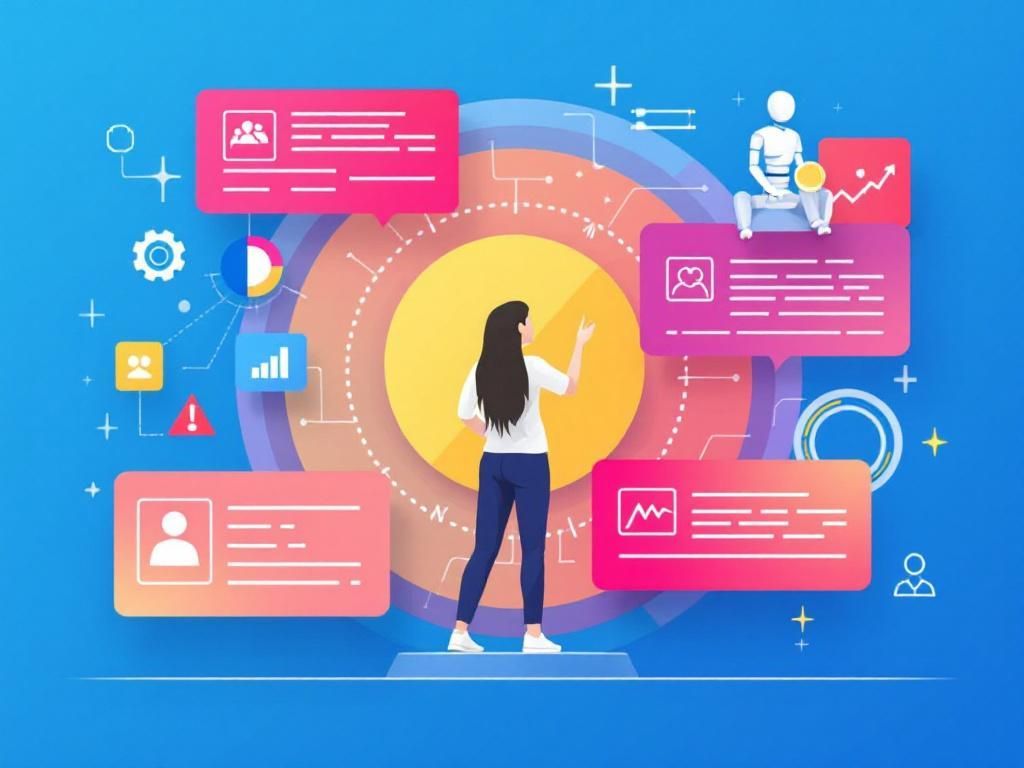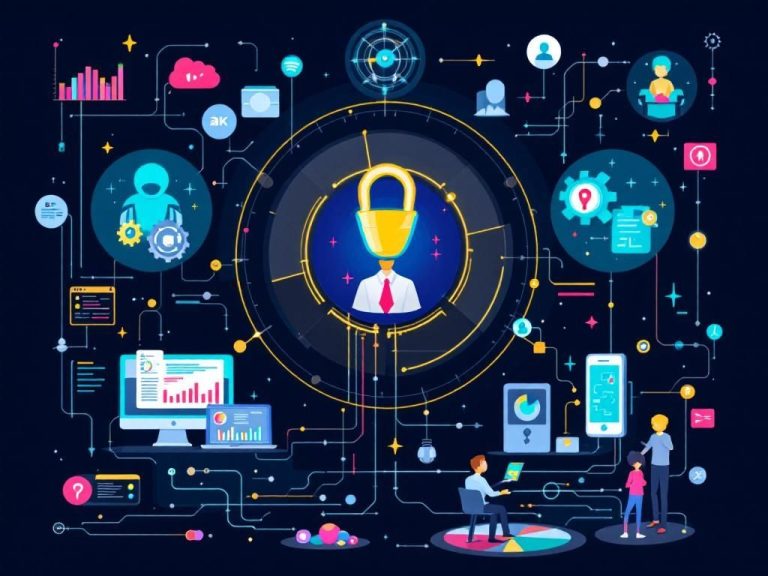The world of recruitment is evolving at an unprecedented pace. As organizations scramble to find top talent in a competitive landscape, traditional hiring methods are proving to be inefficient and outdated. Enter AI talent intelligence tools, which are revolutionizing the recruitment process by leveraging data, algorithms, and machine learning to enhance decision-making, streamline workflows, and improve overall candidate experiences. This article explores how these sophisticated technologies are transforming recruitment practices and what organizations need to consider when integrating them into their hiring strategies.
Understanding AI Talent Intelligence
AI talent intelligence tools combine advanced artificial intelligence with analytical capabilities to collect, interpret, and act upon data related to the recruitment process. These tools can analyze vast amounts of data from various sources, including job boards, social media platforms, and internal databases, to identify potential candidates. The insights generated can help recruiters make informed decisions, ensuring that they engage with the right candidates at the right time.
The Role of Machine Learning
Machine learning, a subset of artificial intelligence, plays a critical role in talent intelligence tools. It enables these platforms to continuously learn from data patterns and improve their predictive accuracy over time. As a result, machine learning enhances the recruitment process in several key ways:
- Enhanced Candidate Matching: Algorithms can analyze candidate profiles, skills, and experiences to match them with job descriptions more accurately.
- Bias Reduction: By relying on data rather than human intuition, AI tools can help mitigate unconscious bias in the hiring process.
- Predictive Analytics: AI can forecast hiring trends and candidate success based on historical data.
Benefits of AI Talent Intelligence Tools
Organizations that adopt AI talent intelligence tools can expect myriad benefits, including:
1. Time Efficiency
Recruitment can be a time-consuming process. AI tools can automate repetitive tasks, such as resume screening and interview scheduling, allowing HR teams to focus on strategic initiatives.
| Task | Traditional Approach | AI Approach |
|---|---|---|
| Resume Screening | Manual review by HR | Automated analysis by AI algorithms |
| Interview Scheduling | Back-and-forth emails | Automated scheduling tool |
| Candidate Outreach | Manual communication | Automated, personalized messaging |
2. Improved Candidate Quality
AI tools can help organizations uncover hidden gems who might not be visible through traditional sourcing methods. By analyzing unique data points, such as soft skills and cultural fit, these tools identify candidates who align with the organization’s values and mission.
3. Data-Driven Decisions
Recruiters can leverage real-time analytics to make better hiring decisions. AI tools provide insights into candidate behavior, market trends, and workforce demographics, helping organizations to make informed decisions about their hiring strategies.
Challenges and Considerations
While AI talent intelligence tools offer numerous advantages, organizations must also navigate certain challenges:
1. Data Privacy Concerns
Recruiters must ensure compliance with data protection regulations, such as GDPR, when collecting and processing candidate data. Clear consent must be obtained from candidates regarding how their data will be used.
2. Integration with Existing Systems
To fully harness the power of AI tools, organizations need to ensure that their existing recruitment systems can seamlessly integrate with new technologies. This may involve investment in APIs and robust IT infrastructure.
3. Training and Adaptation
Recruitment teams may require training to effectively use AI tools. Organizations should invest in upskilling their staff to ensure they are comfortable with new technologies.
Best Practices for Implementing AI Talent Intelligence
To optimize the use of AI talent intelligence tools, organizations can adopt the following best practices:
1. Define Clear Objectives
Before implementing AI tools, organizations should define specific, measurable objectives. This can help to align the recruitment strategy with overall business goals.
2. Choose the Right Tool
Not all AI talent intelligence tools are created equal. Organizations should evaluate different solutions based on features, capabilities, and user reviews to select the one that best fits their needs.
3. Monitor Performance and Iterate
Once implemented, it is crucial to continuously monitor the performance of AI tools. Gathering feedback from users and analyzing key metrics will enable organizations to iterate and improve their recruitment processes.
Case Studies: Success Stories Using AI Talent Intelligence
Several organizations have successfully integrated AI talent intelligence tools into their recruitment processes, resulting in significant improvements:
1. Unilever
Unilever adopted AI-driven assessments to screen candidates for entry-level positions. As a result, they were able to increase the diversity of their talent pool and improve the efficiency of their hiring process.
2. IBM
IBM utilized AI to analyze employee data and identify the skills needed for future roles. This proactive approach to talent management has helped them to stay ahead of industry trends.
3. L’Oréal
L’Oréal integrated AI chatbots into their recruitment process, enabling candidates to engage with the company and receive answers to their queries in real time, enhancing the candidate experience.
Future of AI in Recruitment
As technology continues to evolve, the future of AI in recruitment looks promising. Innovations such as natural language processing (NLP) and advanced predictive analytics are set to further enhance the capabilities of AI talent intelligence tools. Recruiters will increasingly rely on data-driven insights to make strategic hiring decisions, paving the way for a more efficient, transparent, and equitable recruitment process.
Conclusion
The integration of AI talent intelligence tools into recruitment strategies represents a significant leap forward for organizations seeking to navigate the complexities of modern hiring. By leveraging these technologies, businesses can not only enhance their efficiency and improve candidate quality but also foster a more inclusive and data-driven approach to recruitment. As the landscape continues to evolve, those who adapt to these changes will undoubtedly emerge as leaders in the race for top talent.
FAQ
What are AI talent intelligence tools?
AI talent intelligence tools are advanced software solutions that utilize artificial intelligence to analyze, manage, and optimize the recruitment process. They help organizations identify the best candidates by assessing qualifications, skills, and cultural fit.
How can AI improve the recruitment process?
AI can streamline recruitment by automating repetitive tasks, improving candidate screening accuracy, reducing bias in hiring, and providing data-driven insights to make informed decisions.
What are the benefits of using AI in talent acquisition?
The benefits of using AI in talent acquisition include faster hiring times, improved candidate quality, enhanced diversity in hiring, and reduced operational costs associated with recruitment.
Are AI talent intelligence tools suitable for all types of businesses?
Yes, AI talent intelligence tools can be tailored to fit businesses of all sizes and industries, enhancing the recruitment process regardless of the organization’s scale or specific hiring needs.
How do I choose the right AI talent intelligence tool for my organization?
To choose the right AI talent intelligence tool, consider factors such as your specific hiring needs, budget, scalability, integration capabilities with existing systems, and user-friendly interface.
What role does data play in AI talent intelligence tools?
Data is crucial for AI talent intelligence tools as they rely on large datasets to train algorithms, predict hiring outcomes, and continuously improve the recruitment process based on insights gained from previous hires.




